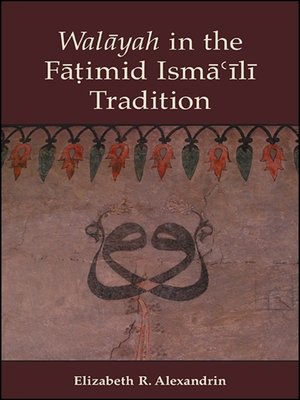
Sign up to save your library
With an OverDrive account, you can save your favorite libraries for at-a-glance information about availability. Find out more about OverDrive accounts.
Find this title in Libby, the library reading app by OverDrive.



Search for a digital library with this title
Title found at these libraries:
| Library Name | Distance |
|---|---|
| Loading... |
Explores the relationship between revelation and reason in medieval Islamic intellectual history.
In this original study, Elizabeth R. Alexandrin examines the complex relationships that can be inscribed between medieval Ismā'īlī thought as an intellectual tradition with a devotional practice of reliance on the imām, and as a politico-esoteric system that redefined governance during the Fāṭimid caliphate in the eleventh century. Alexandrin's work is a departure from recent Western scholarship that focuses on similarities among early Islamic traditions. She argues instead that, under the guidance of the Fāṭimid Ismā'īlī chief missionary al-Mu'ayyad fī al-Dīn al-Shīrāzī (d. 1078 CE), the concept of walāyah (divine guidance) became closely associated with religio-political authority, on the one hand, and the perfection of the individual human being, on the other. By signaling and affirming how the Fāṭimid caliph-imāms were the heirs of walāyah and by proposing new definitions of the "seal of God's friends" (khātim al-awliyā' Allāh), al- Mu'ayyad broadened the contexts of making esoteric knowledge public and shifted the apocalyptic frameworks of Islamic messianism.







